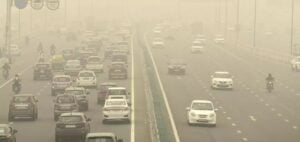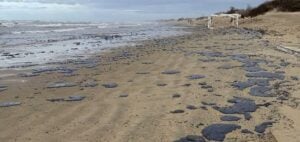The United Arab Emirates pledged on Tuesday to do “much more” to help combat global warming, ahead of this year’s controversial COP28 in the oil-rich Gulf state.
COP28 in Dubai: UAE under fire as host of climate conference
The country is hosting this UN climate conference in Dubai at the end of November, and environmental activists are criticizing the presidency held by Sultan al-Jaber, an oil tycoon and fervent supporter of the hydrocarbon industry, a major CO2 emitter.
As one of the world’s leading exporters of black gold, the United Arab Emirates wants to contribute to keeping global warming “slightly below” 2°C above pre-industrial levels, in line with its commitments under the Paris Agreement, said the UAE Minister for Climate Change, Mariam Almheiri. “We’re trying to do our best as things stand at the moment. I think it will be 1.5°C. We’re not there yet,” she admitted to the press in Dubai. “We’re not giving up hope on this,” she added, admitting that the country could “do a lot more” in this area.
The Paris Agreement, concluded in December 2015 at the end of COP21, aimed to keep the rise in global average temperature “well below 2°C” this century and to pursue efforts to limit it to 1.5°C instead. According to Mariam Almheiri, the United Arab Emirates is following a “pro-climate, pro-growth” approach with a zero-carbon target by 2050, the contours of which will be unveiled before COP28.
The UAE at COP28: Committed despite climate challenges and extreme heat
“We’ve had some difficult discussions” within the government, the minister assured, but, hosting COP28, “we want to apply what we preach”.
The United Arab Emirates, bristling with hyper-air-conditioned skyscrapers and teeming with large 4X4s, is one of the world’s biggest per capita CO2 emitters, with a population of around 10 million. But the country is investing massively in green energies and is banking on CO2 capture technologies, which are very costly and still in their infancy.
Temperatures hover around 45°C, or even 50°C, for several months a year in the Gulf region, parts of which risk becoming unlivable in summer over the long term, according to experts. On a global scale, after a record June, last week was the hottest ever measured on the planet, according to the UN, with the cumulative effect of global warming caused by human activity and the return of El Niño, a cyclical climatic phenomenon.





















